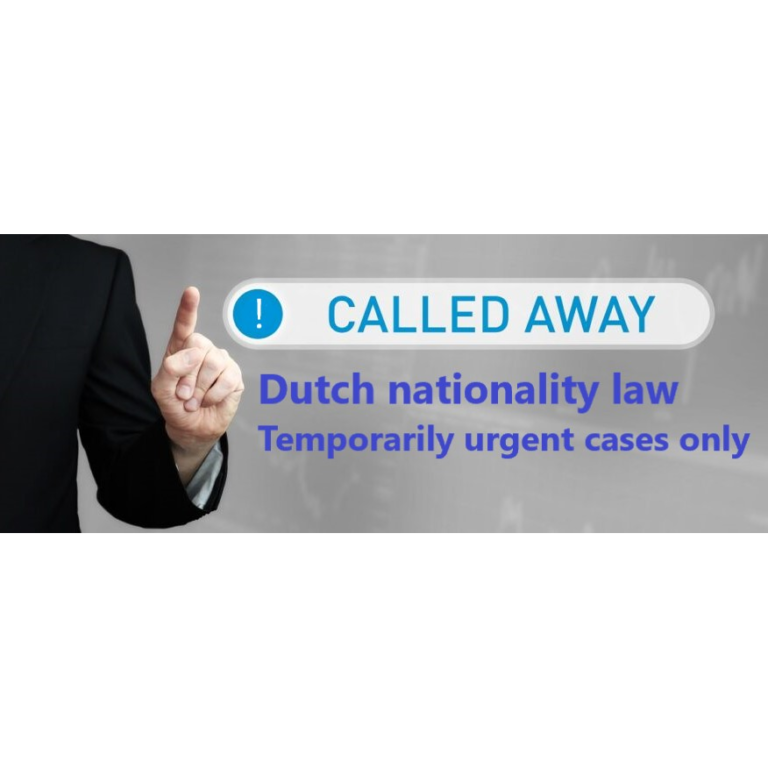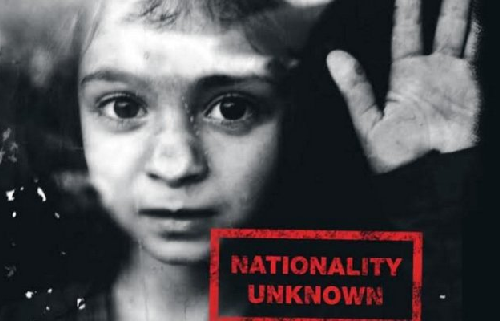There is currently a relatively young former Dutch man standing before the Dutch Council of State/Supreme Court. As he himself states, his Dutch citizenship is at stake. And the way in which the so-called Tjebbes proportionality test has, in his opinion, been disproportionately applied and assessed by the Ministry of Foreign Affairs (BZ), the Immigration and Naturalization Service (IND), and the Court of The Hague, or the relevant decision-making staff and judge. No one is perfect, but the chain of rejections shows that not only do people make mistakes, but the system can get it wrong too. Which system? The system of how the proportionality of the loss of Dutch nationality and EU citizenship is assessed.

This concerns Danno Lahr, an American with a Dutch accent born and raised in Wijchen, The Netherlands, where I coincidentally also went to school for 4 years. An Dutch national who wanted to become American for his work, but also appreciated and wanted to use his Dutch and EU citizenship. He is fighting for the return of his Dutch nationality and EU citizenship. Just like many who try the new Tjebbes Option (RWN Art 6 paragraph 1p).
Unfortunately for many it is just trial and error. The IND recently released a report showing that only 4% of all applications have been approved. Yes, the majority of cases were regarded as a proportionate/good loss. I tentatively assume that the majority of these people had not sought legal advice. But I previously heard from several colleagues from well-known law firms in Amsterdam and The Hague that they are struggling with many, too many, rejections. I once had a conversation with one well known lawyer in this field and we were amazed at the difference, I was still at 100% success at the time. I didn’t think too much about it at the time, I was happy with the success on my side. Maybe I had easier situations/cases?
But recently through discussions with clients who have had experiences with these law firms, it also seems to me that there is a difference in approach. I take more time for my clients and have interviews that delve deep into the past. I also spend a lot of time explaining all aspects of the legislation and helping to find the supporting documents, Tjebbes statements, IND instructions, and solutions. I even traveled to Madrid for a client to track down old evidence at a university there. In this way, sometimes forgotten aspects are traced that do indeed influence someone’s nationality. I therefore started identifying what my current percentages are.
My Tjebbes clients; 70% approval, 20% rejection on objection (does not want to proceed to Court), 10% pending. The longest Tjebbes case I had so far was about 20 hours from Nov 2020 to May 2022 (1 year 7 months). The shortest case was about 3 hours over about three months.
Below is the timeline of an approval (objection well-founded) that arrived today. The Ministry of Foreign Affairs sent this positive decision in an email that mistakenly stated “You hereby receive the decision on your notice of objection in which the application for a declaration of possession of Dutch nationality has been rejected.” I received a disappointed email from client. In frustration I had thrown one of my monitors against the wall. But I read it carefully further on the other monitor and yes, I had to quickly call to wish the client luck. The introduction was opposite of the actual objection being upheld. A stupid administrative error? Fair enough. But with this matter it is also a dangerous mistake. I know from some clients that this is their last hope in life, they have no other motivation to breathe than to get their nationality back. Imagine…
Jan 2021 Declaration of Dutch citizenship applied for on the advice of the embassy (Embassy incorrectly advised to only justify the Dutch ties)
Aug 2021 IND gives BZ negative advice (proportional loss).
Dec 2021 Declaration of Dutch citizenship rejected by BZ.
Feb 2022 Client asks me for advice. Objection started. Delay requested for submitting grounds for objection.
Additional grounds and supporting documents submitted in March and May 2022.
Jul 2022 BZ asks IND for renewed advice
Early Sep IND now advises positively, the loss was disproportionate.
Objection upheld by BZ at the end of September 2023. Still disproportionate loss, Dutch nationality returned retrospectively.
(all just under 5 hours of my time over 1 year and 8 months)
The case above concerns the (added) Swiss nationality. And unfortunately, the Swiss have even more rights to live and work in the EU than Americans. BZ and the IND are then happy to look at “insurmountable difficulties” or “special difficulties” that would stand in the way of the person’s EU rights. But the Swiss have comparable rights in view of the European Economic Area (EEA) treaty. But the Swiss are not yet EU citizens and so it may be a bit childish from the Dutch government to say that the loss of EU rights is OK/proportionate. Just like an American can enter Europe without a visa. This is (increasingly) used as a ground for rejection by the IND and BZ. The fact that an American is welcome for 90 days for tourism or business would offer a sufficient alternative and therefore be rejected. Or that the American has (later) received a work or residence permit.
In my opinion, applicants are not always treated as former Dutch nationals, but as foreigners who the officials seem to want to exclude. The terms “insurmountable difficulties” or “special difficulties” were not explained or used as such in the Tjebbes ruling. So now there is a former Dutch national asking the Council of State/Supreme Court to provide clarity on this. The striking thing is that in terms of content, his burden of proof etc. is virtually the same as that of my Swiss client who was retrospectively given her Dutch citizenship back during an objection. For your information, we are currently also waiting to see whether the Council of State finds this case admissible. Without admissibility, the person is then shown the door and, in my opinion, denied justice.
I’m always someone who says “if you can do it yourself, then do it!” But given the 4%, I won’t do that here anymore. For former Dutch nationals who are considering a Tjebbes proportionality test (Option Art 6 paragraph 1p), or wish to object, seek and use legal advice and assistance. And yes, you don’t have to knock on my door (but you’re crazy if you don’t 😉). But seek help. And no, it doesn’t always work. I also have a 20% rejection rate. One of which I now say, I should have advised/done it differently. We still had to request a document from a foreign authority, but we thought we were in a strong position.
That’s the frustrating part, when you know the decision was in itself disproportionate/incorrect. Today a bright spot for me and this client, and hopefully that the Council of State can also illuminate the government for others. If not, then perhaps the EU should once again ease our rigid Dutch attitude.



